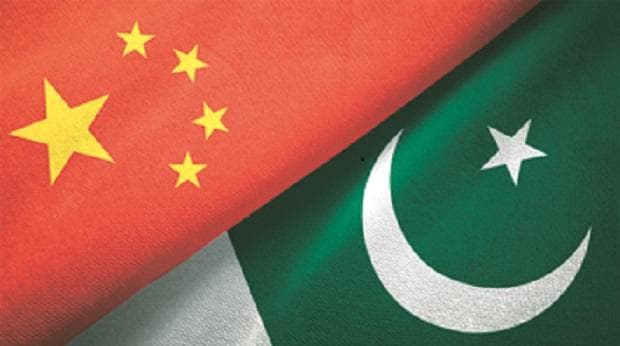China and Pakistan have decided to sign a Memorandum of Understanding (MoU) on Global Development Initiatives (GDI) to explore particular development cooperation projects and fight poverty using Chinese grants and interest-free and concessional loans.
The MoU is anticipated to be signed on November 2 during Prime Minister Shehbaz Sharif’s trip to China. According to the MoU, the China International Development Cooperation Agency and the Economic Affairs Division have agreed to promote the Global Development Initiative (Gimplementation )’s and strengthen development cooperation.
Both parties acknowledge that China and Pakistan are inseparable allies and all-weather strategic partners, and that their long-standing relationship has become stronger over time. Both parties concur that the world’s advancements have reached a turning point and that fulfilling the 2030 Sustainable Development Goals will be extremely difficult for developing nations.
The GDI, as suggested by President Xi Jinping, will successfully advance an inclusive, equal, balanced, and global development partnership and provide a powerful incentive to hasten the implementation of the 2030 Agenda.
Both parties are eager to actively increase their working relationship within the GDI’s framework. By employing Chinese grants, interest-free loans, concessional loans, global development and South-South cooperation funds, etc., both parties agree to investigate specific projects for development cooperation. The Pakistani side is prepared to actively consider submitting an application for a particular proportion of cash to match projects as necessary.
Both parties concur to collaborate to advance the SDGs for 2030 and actively engage in trilateral cooperation to carry out more projects that would support Pakistan’s economic growth and enhance the lives of its citizens.
Both parties concur to concentrate on the following areas: poverty reduction, healthcare, education, infrastructure, agriculture, planning and consultation, culture and sports, cooperation in law enforcement, development of human resources, think tank exchanges, and other GDI-compliant projects.
Both parties consent to set up a framework for consultation and hold routine in-person or online meetings. Each year, directors will travel to the other’s countries to further exchange ideas, solve issues quickly, and advance the effective execution of development cooperation.
Both parties undertake to regularly collaborate on inspections to keep an eye on and assess aid projects, as well as to guarantee their reliability and efficacy. The United Nations Sustainable Development Cooperation Framework – UNSDCF (2023-2027) was signed with the Government of Pakistan for five years (2023-2027) at the Ministry of Economic Affairs on October 25, according to a press statement from the EAD division of the Ministry of Economic Affairs.
Dr. Kazim Niaz, Secretary Economic Affairs Division, signed on behalf of Pakistan, and Julien Harneis, Resident & Humanitarian Coordinator, signed on behalf of the UNSDCF.
The secretary EAD extended a warm welcome to the UN coordinator and expressed gratitude for the UN’s contribution to the creation of the first-ever UN Sustainable Development Cooperation Framework (2023-27) for Pakistan’s achievement of the Sustainable Development Goals. He added that the UNSDCF’s priorities and those of the federal and provincial governments were in agreement.
“Pakistan is appreciative of the UN’s assistance in achieving the Sustainable Development Goals (SDGs) and for its ongoing help throughout the relief and rescue efforts related to the floods. In order to strengthen national development priorities and the quality of life for Pakistanis, the Pakistani government is dedicated to cooperating with the UN there, according to Secretary Kazim Niaz.
According to Mr. Harneis, the Cooperation Framework is the outcome of a year-long, cross-country consultation process between the government and technical line ministries, resident and non-resident UN agencies, and national and international civil society organisations. He promised Pakistan that the UN will continue to support it as it started working to achieve the requirements and commitments outlined in the framework.
The UNSDCF for Pakistan promotes five priority objectives from January 2023 to December 2027: basic social services, gender equality and women’s empowerment, climate change and the environment, sustainable inclusive economic growth and decent work, and governance.


